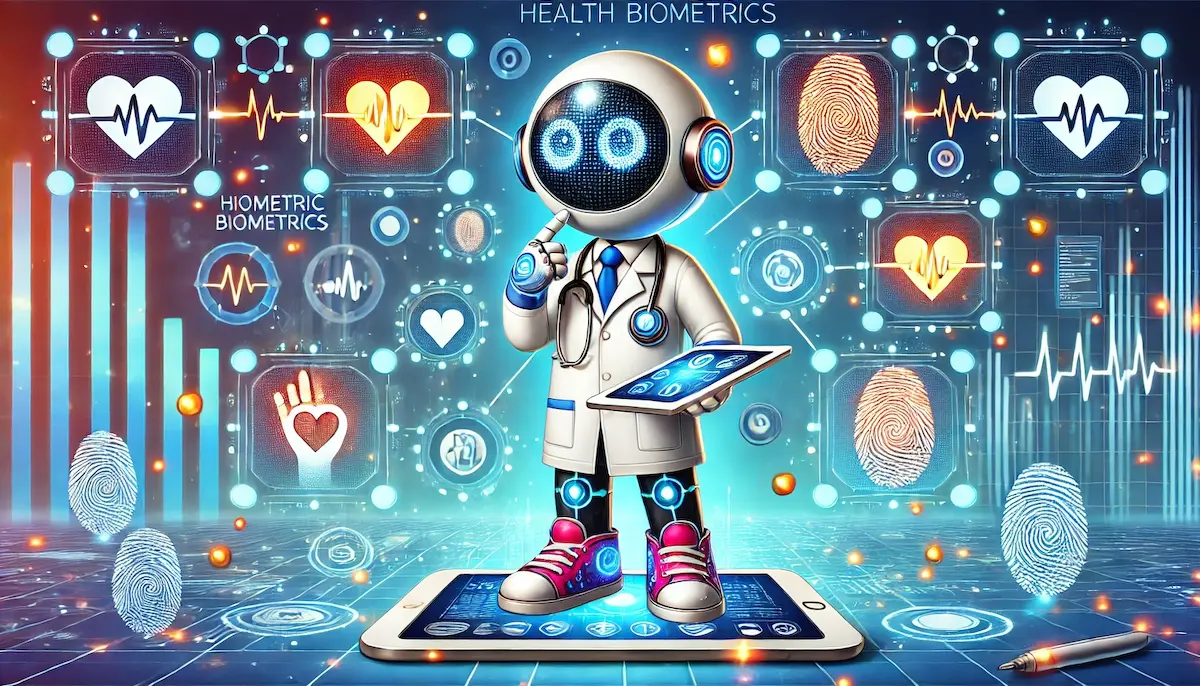Health biometrics refers to the measurement and analysis of physical and behavioral characteristics to understand and monitor an individual’s health status. These metrics provide valuable insights into various aspects of a person’s well-being, enabling more personalized and proactive healthcare.
What are Health Biometrics?
Health biometrics encompass a wide range of data points collected from the human body. These include physiological measures such as heart rate, blood pressure, and body temperature, as well as behavioral data like physical activity levels and sleep patterns. Modern technology has enabled the continuous and non-invasive monitoring of these metrics, often through wearable devices and smart technology.
Types of Health Biometrics
Physiological Biometrics
- Heart Rate: Measures the number of heartbeats per minute, providing insights into cardiovascular health and fitness levels.
- Blood Pressure: Indicates the force of blood against the walls of the arteries, crucial for diagnosing and managing conditions like hypertension.
- Body Temperature: Reflects the body’s core temperature, useful for detecting fever and other health conditions.
- Respiratory Rate: Counts the number of breaths per minute, important for assessing respiratory health.
Behavioral Biometrics
- Physical Activity: Tracks movement and exercise, helping to understand an individual’s fitness and activity levels.
- Sleep Patterns: Monitors sleep duration and quality, which are essential for overall health and well-being.
- Caloric Intake and Expenditure: Assesses the balance between calories consumed and burned, aiding in weight management and metabolic health.
Importance of Health Biometrics
Personalized Healthcare
Health biometrics enable personalized healthcare by providing data specific to an individual’s body and lifestyle. This information helps healthcare providers tailor treatments and interventions to the unique needs of each patient, improving outcomes and reducing the risk of adverse effects.
Early Disease Detection
Continuous monitoring of health biometrics can help detect early signs of disease before symptoms become apparent. For instance, irregularities in heart rate or blood pressure can indicate cardiovascular issues, while changes in sleep patterns might signal mental health concerns. Early detection allows for timely intervention and better disease management.
Health and Wellness Tracking
Wearable devices that monitor health biometrics empower individuals to take control of their health. By tracking their metrics, people can make informed decisions about their diet, exercise, and lifestyle, leading to improved health and wellness.
Research and Public Health
Aggregated health biometric data from large populations can provide valuable insights for medical research and public health initiatives. This data can help identify trends, understand disease prevalence, and develop strategies to address health issues at a population level.
Challenges in Health Biometrics
Data Privacy and Security
The collection and storage of health biometric data raise significant privacy and security concerns. Protecting this sensitive information from unauthorized access is crucial to prevent misuse and ensure patient confidentiality.
Accuracy and Reliability
The accuracy and reliability of health biometrics depend on the quality of the devices and methods used for measurement. Ensuring that these tools provide precise and consistent data is essential for making informed healthcare decisions.
Ethical Considerations
The use of health biometrics involves ethical considerations, particularly regarding consent and the potential for misuse. Clear guidelines and regulations are needed to ensure that biometric data is used responsibly and ethically.
The Future of Health Biometrics
The future of health biometrics is promising, with advancements in technology continually enhancing the precision and scope of biometric measurements. Innovations in wearable devices, artificial intelligence, and data analytics are expected to further integrate biometrics into everyday healthcare, making personalized and preventive care more accessible and effective.
Blockfine thanks you for reading and hopes you found this article helpful.
